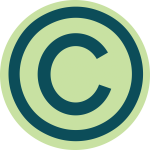 Every three years the Copyright Office meets to reconsider exemptions to the DMCA Anti-Circumvention provisions. These exemptions are critical to ensuring creators and consumers’ ability to bypass technological protection measures on copyrighted works, allowing them to make fair use of works in a variety of circumstances. As we did in 2012, New Media Rights submitted extensive comments and testimony, working on behalf of creators and consumers to maintain and expand on the exemptions currently in place.
Every three years the Copyright Office meets to reconsider exemptions to the DMCA Anti-Circumvention provisions. These exemptions are critical to ensuring creators and consumers’ ability to bypass technological protection measures on copyrighted works, allowing them to make fair use of works in a variety of circumstances. As we did in 2012, New Media Rights submitted extensive comments and testimony, working on behalf of creators and consumers to maintain and expand on the exemptions currently in place.
On October 27, the Copyright Office revealed the results of their 2015 Anti-Circumvention Rulemaking. Many of our recommendations were adopted, and we were cited repeatedly in the rulemaking.
Here's the final rule, and here's the Registrar's recommendation citing New Media Rights.
This is usually the part where we say we’re proud to have been a part of making sure these vital exemptions were granted and expanded. We are proud of our contributions and we’ll highlight those below, but we also need to take amount to keep it real. The DMCA Anti-circumvention rulemaking is broken.
A broken process
The problem is that every three years law clinics, nonprofits, and consumer groups are made to spend thousands of hours proving all over again the necessity of narrow exemptions simply intended to allow consumers and creators to make fair use of works. The Copyright Office grants some narrow expansions of exemptions, but basically makes small carveouts for a narrow class of fair uses. All of this effort is required despite Copyright owners offering specious or no evidence about any harm that’s being protected by not providing exemptions. Yes, you read correctly. Advocates are spending thousands of hours asking the Copyright Office to please make exemptions for a universe of uses that are, but for the DMCA Anti-circumvention provisions, in no way illegal! As one commentator put it, the narrow exemptions are "like a manicured garden in the middle a Superfund site."
How do we fix this? Yes could give exemptions more permanent status, and once established put the burden on the side trying to disprove the necessity of the exemption. But a real fix is actually fairly straightforward. If it’s fair use, it should be exempted from the Anti-Circumvention provisions. Period.
Highlights:
Video Reuse Exemptions for DVD, Blu-Ray and Streaming
The Copyright Office renewed and expanded upon the current exemption. The exemptions added Blu-Ray, and now allows for the reuse of video content from DVD’s, Blu-Ray’s and online streaming services for certain types of fair use. New Media Rights specifically argued that non-commercial remix creators should be able circumvent for purposes of making important political and cultural remix videos. The final exemption also allows for circumvention of DVDs by Kindergarten-12th grade educators and students for educational purposes (although the Copyright Office declined to expand that exemption to Blu-Ray’s or online transmissions), and of DVD’s, Blu-Ray’s and online streaming services by college educators and students, multimedia e-book authors, and professionals who have been commissioned to make videos for nonprofit purposes.
Documentary Filmmakers Exemptions
New Media Rights submitted comments and testimony strongly urging the Copyright Office to expand upon the current exemption that allows a documentary filmmaker to circumvent digital protections on DVD’s and online sources to make fair use, to include broader protections for non-documentary films as well, including all narrative/fictional films arguing fair use. In our comments, supporters including ourselves cited more than 30 non-documentary films that relied heavily on fair use, to illustrate the need for filmmakers everywhere to have these anti-circumvention exceptions, regardless of whether they’re making a documentary or another type of film. While the Copyright Office did expand on documentary filmmakers’ rights to bypass anti-circumvention technologies on Blu-Rays (recognizing the necessity in the industry to have access to somewhat higher quality footage), the Library declined to expand those exemptions to non-documentary films, maintaining a genre distinction that makes using this exemption difficult for the many online video creators a challenge.
Jailbreaking of Smartphones and Tablets
The Copyright Office also renewed and expanded an important exemption we supported that permits smartphone and tablet users to install the software of their choice on their devices. Tablets were not included in the 2012 rule, but were added this time around in 2015. This exemption is critical to keep device manufacturers, carriers, and OS makers from limiting access to otherwise legal services and content.
Of course, the Copyright Office’s 2015 rulemaking session covered far more than just the exemptions we covered above. Other highlights include new exemptions allowing circumvention of access restrictions to repair and modify vehicles, archive video games, and even to access medical devices in certain circumstances.
A big congratulations also goes out to the many other folks who worked on the 2015 DMCA Anti-Circumvention Proceedsings, including The Organization for Transformative Works, the University of California-Irvine Arts & Technology Law Clinic, Electronic Frontier Foundation, and Public Knowledge to name just a few.
For more information about some of the other results of the 2015 rulemaking session, we highly encourage you to check out the Electronic Frontier Foundation’s coverage here.

